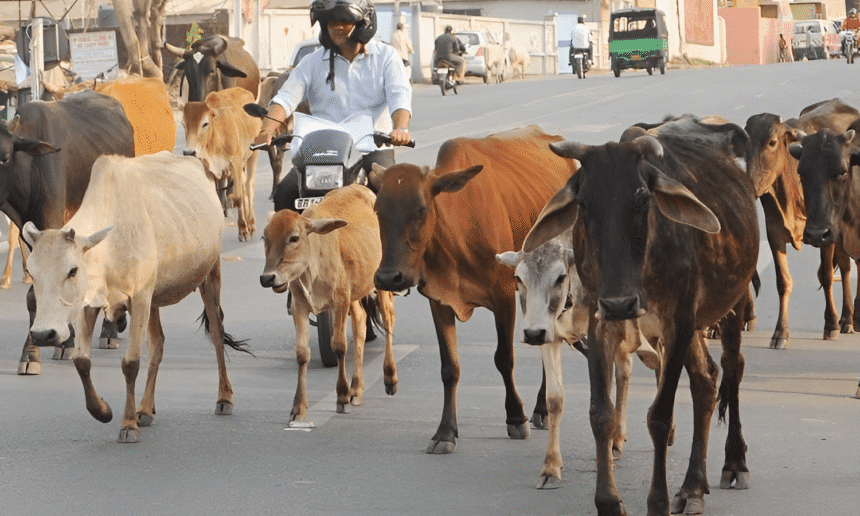In a significant legal ruling, a sessions court in Amreli district convicted three Muslim men of cow slaughter under the Gujarat Animal Preservation Act, sentencing them to life imprisonment and imposing a joint fine exceeding ₹18 lakh. Special Public Prosecutor Chandresh Mehta noted that this marks the first instance in Gujarat where three individuals have received life terms in a single cow-slaughter case.
The Gujarat government welcomed the verdict, asserting its commitment to cow protection and emphasizing that the judgment sends a strong message against those who violate laws concerning “Gaumata” or cow, a sacred animal in many Hindu communities. The Gujarat Animal Preservation Act prohibits the slaughter of any animal belonging to the cow progeny within the state.
Critics argue that such laws, often portrayed as animal welfare initiatives, disproportionately affect Muslims and Dalits, who are involved in the cattle trade, leather industry, and beef consumption. This has resulted in economic upheaval, instances of vigilante violence, and a rise in Islamophobia.
The case in question dates back to November 6, 2023, when police in Amreli conducted a raid based on a tip-off, discovering evidence of cow slaughter at a house in the Khatkivad area. Authorities reportedly recovered meat suspected to be of cow origin, with a veterinary doctor and forensic team later confirming its origin.
Of the three accused, Akram Solanki (30) was apprehended at the scene, while Kasim Solanki (20) and Sattar Solanki (52) initially fled but later surrendered. Apart from the Gujarat Animal Preservation Act, the trio faced charges under various sections of the Indian Penal Code. The trial was conducted by Sessions Judge Rizvana Bukhari, who ordered that failure to pay the imposed fine would incur additional imprisonment.
State officials hailed the ruling as “historic.” Jitu Vaghani, a senior minister and government spokesperson, described the judgment as a “red signal” to individuals involved in cow slaughter, stressing that Gujarat would exercise no leniency in such matters.
The government’s statement underscored the notion that “Gaumata” is central to Indian culture and faith. Vaghani highlighted that the evidence presented was robust, contributing to the convictions. Notably, Gujarat was the first state to introduce stringent cow slaughter laws in 2011 during the tenure of then Chief Minister Narendra Modi, who is currently Prime Minister, and these laws were later amended to include life imprisonment provisions.
Under BJP governance, over 20 states—most governed by the party—have amended cow-protection laws, instituting harsher penalties including life imprisonment, fines up to ₹5 lakh, and bans on possessing and selling beef. For instance, Maharashtra’s 2015 amendment prohibited the slaughter of cows, bulls, and bullocks, with possession of beef carrying a penalty of up to five years in prison. In Uttar Pradesh, over 2017, numerous Muslim-run slaughterhouses and meat shops were shut down under Chief Minister Yogi Adityanath.
Gujarat updated its laws in 2017 to equate cow slaughter with murder, allowing courts to impose life sentences. Meanwhile, Assam’s 2021 law restricted the sale of beef near temples and in predominantly non-beef-consuming districts, disproportionately impacting Muslim vendors.
Many assert that these legislative changes are aligned with the BJP’s Hindu nationalist agenda, which positions “gau raksha”—or cow protection—as a means of cultural preservation. However, data indicates that dairy farming is the primary driver of cattle slaughter in India, and the country’s buffalo meat exports, valued around ₹4,000 crore annually, remain unaffected by these regional restrictions.
Tags: Three Muslims sentenced to life under Gujarat cow-protection law Extract 5 SEO-friendly keywords as tags. Output only keywords, comma separated.
Hashtags: #Muslims #sentenced #life #Gujarat #cowprotection #law










